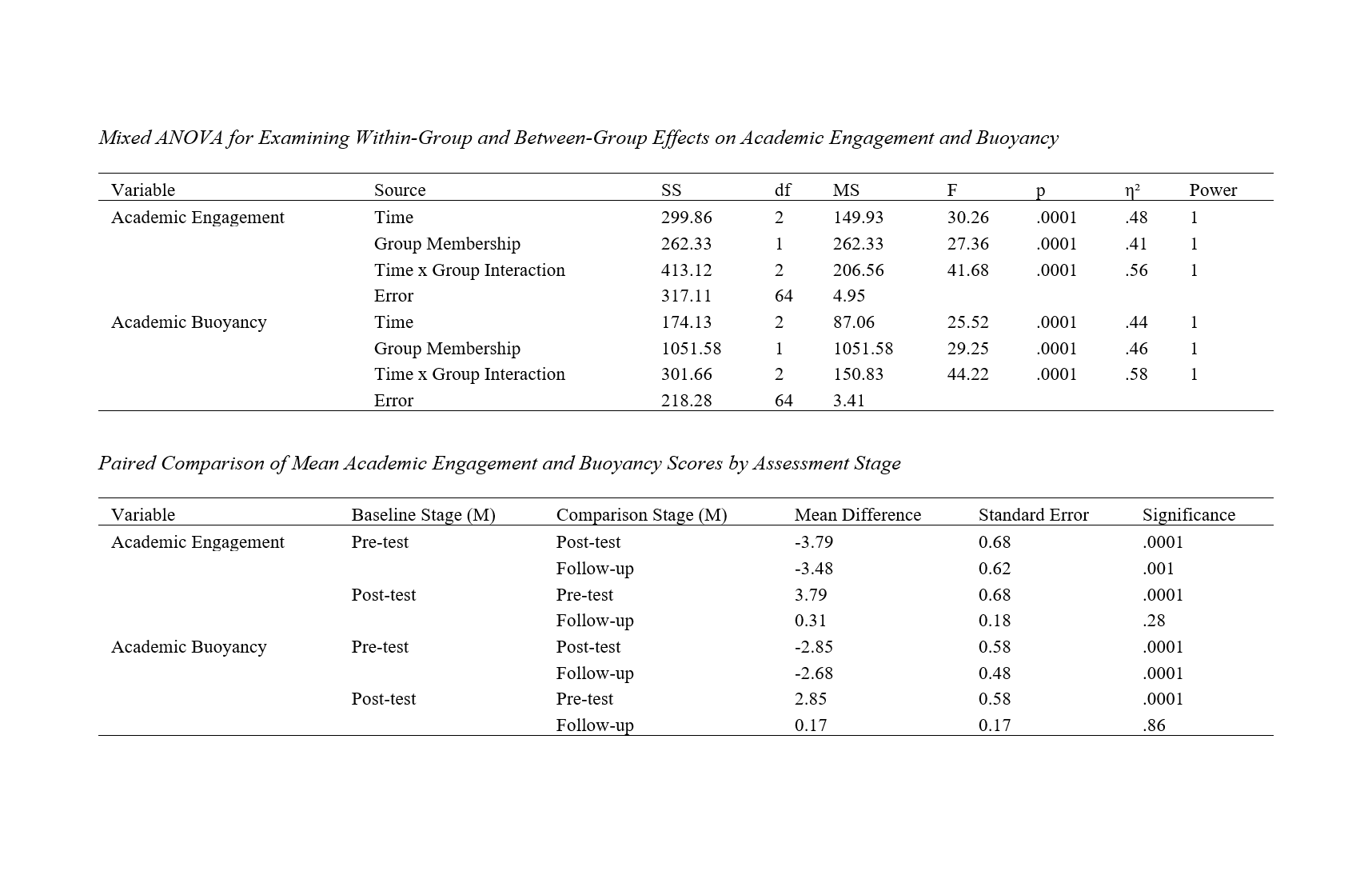The Effectiveness of Adolescent-centered Mindfulness Therapy on Academic Engagement and Buoyancy in Anxious Middle School Students
Keywords:
Adolescent-centered mindfulness therapy, Academic engagement, Academic buoyancy, Anxious studentsAbstract
Objective: The present study aimed to investigate the effectiveness of adolescent-centered mindfulness therapy on academic engagement and buoyancy in anxious middle school students.
Methods and Materials: The research method was quasi-experimental with a pre-test, post-test design, including a control group and a two-month follow-up period. The statistical population of this study consisted of anxious middle school students in Isfahan during the 2023-2024 academic year. A total of 34 anxious students were selected through purposive sampling and randomly assigned to experimental and control groups (18 students in the experimental group and 16 students in the control group). Students in the experimental group received adolescent-centered mindfulness therapy over ten weeks in ten 90-minute sessions. The questionnaires used in this study included the Anxiety Inventory (Beck et al., 1988), the Academic Engagement Questionnaire (Fredericks, Blumenfeld, & Paris, 2004), and the Academic Buoyancy Questionnaire (Martin & Marsh, 2008). The data were analyzed using mixed ANOVA and Bonferroni post hoc test with SPSS23 software.
Findings: The results showed that adolescent-centered mindfulness therapy had a significant impact on academic engagement (P<0.0001; Eta=0.56; F=41.68) and academic buoyancy (P<0.0001; Eta=0.58; F=44.22) in anxious students.
Conclusion: Based on the findings of this study, it can be concluded that adolescent-centered mindfulness therapy, through the application of mindful practices such as mindful eating, purposeful and mindful breathing, and mindful walking, can lead to an increase in the mindful skills of anxious students, thereby enhancing their academic engagement and buoyancy
Downloads

Downloads
Additional Files
Published
Issue
Section
License

This work is licensed under a Creative Commons Attribution-NonCommercial 4.0 International License.








